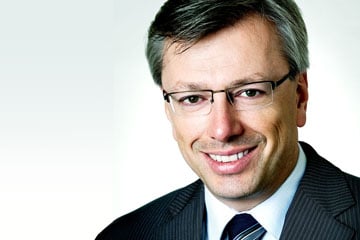

Reports that a Magic Circle firm is looking to set up a shop in Canada have surfaced again, but this time the rumour is that a U.K. firm could be looking at Toronto.
Last week, both The Lawyer online and Legal Week reported that London-based Freshfields Bruckhaus Deringer LLP might be looking at Toronto, not Vancouver, for a future services centre.
Reports of a Freshfields location in Canada first surfaced a year ago when one of the firm’s executive partners hinted a plan was in the works to open a second “legal services centre” in Vancouver at the end of 2016. The centre would largely be staffed initially by paralegals. The firm has a similar kind of centre in Manchester employing 250 people.
But Freshfields still isn’t officially tipping its hat one way or the other.
“We haven’t made any final decisions about a second centre and are continuing to investigate a number of options,” said Nick Bell, a spokesman for Freshfields, via email.
Freshfields has more than 2,500 lawyers in offices around the world.
Jordan Furlong, an analyst of the legal market, says there has been talk for a long time of “the Magic Circle sniffing around Canada” — in the past, it has typically been Allen & Overy LLP.
“It’s interesting for a couple of reasons — for one, they’re clearly not looking for the cheapest location,” says Furlong. “If you’re looking for competent legal personnel, Calgary is great, Halifax is great. So far, they have hinted at the two most expensive cities in the country.”
Past reports have always tied a Canadian expansion to the firm’s Manchester services centre. It has 40,000 square feet on four floors of a major office building with plans to hire up to 700 people.
“It suggests Freshfields is serious about taking the functions that can be moved into that kind of centre — HR, IT, marketing and business development — it’s like they want the people doing legal work in one location and everything else the firm does in another,” says Furlong who recently published a new book: Law Is a Buyer’s Market.
He notes that because Ontario has a full-fledged paralegal licensing and training program that might be why Freshfields may have its sights set on Toronto for staffing the centres.
Future advances by international firms into Canada are more likely to be the kind of expansion Freshfields is exploring as opposed to involving international mergers with Canadian firms, he says.
“There aren’t necessarily that many attractive large law firms — at this point, it’s either firms that are top of the grade that are not going to be open to a merger in which they lose their brand and firms that don’t have as much attractiveness for the global market,” he says.
“Expansions in the future will be less about huge link-ups of major firms and more about looking for qualified legal support personnel and technology.”
Peter Carayiannis, partner at Deloitte Conduit Law, says if Freshfields is looking at Canada again, it could have a negative impact on certain levels of the Canadian legal market.
“The big get bigger, the small get focused and the middle get squeezed,” he says. “This is where you see the truly global players in the market will continue to grow and expand and extend capabilities and grow to better serve clients and not just grow for the sake of growth. If that’s the case, it will be a winning strategy.”
Creating competition in the market will create a net benefit for those needing services in the market, he says.
Carayiannis says Toronto has also started to develop a reputation internationally as a hub for legal innovation.
Ryerson University’s Legal Innovation Zone and Legal X are viewed as attractive centres of technology innovation that may also be appealing to firms outside Canada.
Furlong’s book talks about productivity engines and traditionally law firms have only had one engine and that is a lawyer — now it will be people, machines or systems to amplify the expertise their lawyers provide.
“That to me feels like the direction the big firms are starting to move towards and maybe Freshfields is a sign of that,” Furlong says.
While still early days, use of technology is increasingly how firms are adding revenue-generating tools to their portfolios.
U.S. labour and employment firms Littler Mendelson PC and Ogletree Deakins Nash Smoak & Stewart PC, which recently set up shop in Toronto, are very focused on cost containment, efficiency and especially automation technology.
“I think future advances into Canada might be more along those lines,” says Furlong.
In Canada, Freshfields has advised clients such as Bank of Montreal, Canada Pension Plan Investment Board, Province of British Columbia and Ontario Teachers’ Pension Plan.